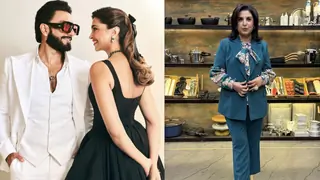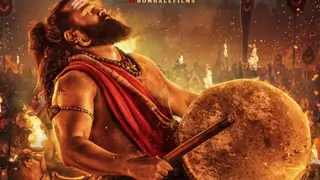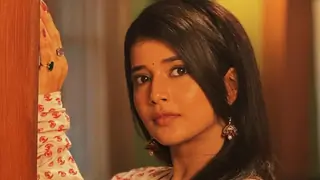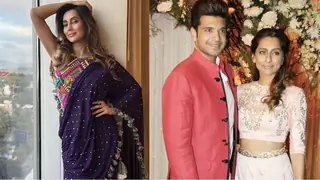Posted:
Its a thanda thanda, cool cool affair
It could almost be a question on TV gameshow Kaun Banega Crorepati: How many brands does Amitabh Bachchan endorse? If you guessed a dozen, or perhaps 20, you're not even close. During 2005, the Biggest B endorsed no less than 39 brands, for 23 advertisers, across 23 categories, featuring in 85 different TV commercials, for a total adspend of Rs 111 crore.
It's not just Bachchan that marketers are fighting over — the demand extends from Bollywood and cricket megastars all the way down to TV stars like Smriti 'Tulsi' Irani (three brands just this year), Shweta 'Prerna' Tiwari (11 brands) and stars of previous decades like Hema Malini who is enjoying a second coming of sorts with 13 brands.
With every other commercial on TV featuring a celebrity, there are plenty of detractors who say it's the result of marketers jumping on a bandwagon and treating a star endorser as a quick-fix way of building appeal. So how does a brand get the maximum mileage out of a celebrity? "For us it's all about creating a match between the brand and the celebrity's personality — whether it's Shah Rukh, Kareena and Priyanka for Pepsi or Mallika Sherawat for 7-Up. Only then does it create salience," explains Punita Lal, head of marketing, Pepsi.
And even if a celebrity is linked to more than three dozen brands, they can still pull consumers in. Aditya Aggarwal, director, Emami, which hired Amitabh Bachchan as a brand endorser is emphatic: "He has helped Fast Relief grow 70% last year. And Navratna Tel, which was a Rs 40 crore brand four years ago, is a Rs 150 crore brand today. India is a hero-worshipping nation and people are constantly looking for a role model or an icon."
The formula seems to work for Emami: Shah Rukh Khan, Kareena Kapoor, and Chiranjeevi also endorse its brands. Textile marketer S Kumars, which uses Bachchan for Reid & Taylor, agrees. "We have been able to percolate down to class 2&3 cities, as consumers identify much more with him. As an icon, he cuts across sections, more than our previous endorser, Pierce Brosnan. We have been able to expand to 11,000 retailers in 300 cities and our sales have gone up exponentially. We have gained a 15% share of the luxury textile market in just seven years," says Govind Mirchandani, CEO, Reid and Taylor.
There's also a larger shift taking place in advertising which is having an impact. "Conceptually, advertisements are becoming more and more about entertainment and attention, than message, and that's where having a celebrity helps. A celebrity becomes a natural magnet," explains Santosh Desai, president, McCann Erickson. And there's the impact argument as well: "One of the reasons for the explosion is that in a market where on an average there are around 100,000 brands bombarding the media on a continuous basis, it's a nice way to differentiate," says LV Krishnan, CEO, TAM Media Research.
Some in the industry aren't buying any of it. "I think they (marketers) are just being lazy in most cases and following herd instinct. There should be serious thinking on whether the brand values are reflected by the ambassador. It should be a strategic fit rather than a tactical move," says Rima Gupta, country head of the WPP-owned consultancy, The Henley Centre.
When brands first started using celebrity endorsers, they expected them to serve multiple roles — create instant awareness for the category; distinguish the brand from competition, and even reinforce the consumer experience post-purchase.
It's not just Bachchan that marketers are fighting over — the demand extends from Bollywood and cricket megastars all the way down to TV stars like Smriti 'Tulsi' Irani (three brands just this year), Shweta 'Prerna' Tiwari (11 brands) and stars of previous decades like Hema Malini who is enjoying a second coming of sorts with 13 brands.
With every other commercial on TV featuring a celebrity, there are plenty of detractors who say it's the result of marketers jumping on a bandwagon and treating a star endorser as a quick-fix way of building appeal. So how does a brand get the maximum mileage out of a celebrity? "For us it's all about creating a match between the brand and the celebrity's personality — whether it's Shah Rukh, Kareena and Priyanka for Pepsi or Mallika Sherawat for 7-Up. Only then does it create salience," explains Punita Lal, head of marketing, Pepsi.
And even if a celebrity is linked to more than three dozen brands, they can still pull consumers in. Aditya Aggarwal, director, Emami, which hired Amitabh Bachchan as a brand endorser is emphatic: "He has helped Fast Relief grow 70% last year. And Navratna Tel, which was a Rs 40 crore brand four years ago, is a Rs 150 crore brand today. India is a hero-worshipping nation and people are constantly looking for a role model or an icon."
The formula seems to work for Emami: Shah Rukh Khan, Kareena Kapoor, and Chiranjeevi also endorse its brands. Textile marketer S Kumars, which uses Bachchan for Reid & Taylor, agrees. "We have been able to percolate down to class 2&3 cities, as consumers identify much more with him. As an icon, he cuts across sections, more than our previous endorser, Pierce Brosnan. We have been able to expand to 11,000 retailers in 300 cities and our sales have gone up exponentially. We have gained a 15% share of the luxury textile market in just seven years," says Govind Mirchandani, CEO, Reid and Taylor.
There's also a larger shift taking place in advertising which is having an impact. "Conceptually, advertisements are becoming more and more about entertainment and attention, than message, and that's where having a celebrity helps. A celebrity becomes a natural magnet," explains Santosh Desai, president, McCann Erickson. And there's the impact argument as well: "One of the reasons for the explosion is that in a market where on an average there are around 100,000 brands bombarding the media on a continuous basis, it's a nice way to differentiate," says LV Krishnan, CEO, TAM Media Research.
Some in the industry aren't buying any of it. "I think they (marketers) are just being lazy in most cases and following herd instinct. There should be serious thinking on whether the brand values are reflected by the ambassador. It should be a strategic fit rather than a tactical move," says Rima Gupta, country head of the WPP-owned consultancy, The Henley Centre.
When brands first started using celebrity endorsers, they expected them to serve multiple roles — create instant awareness for the category; distinguish the brand from competition, and even reinforce the consumer experience post-purchase.

















